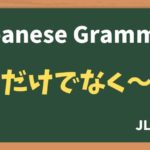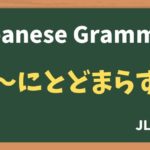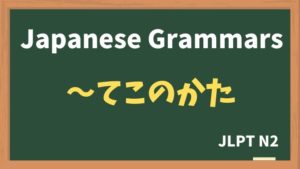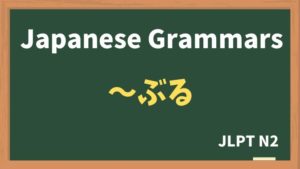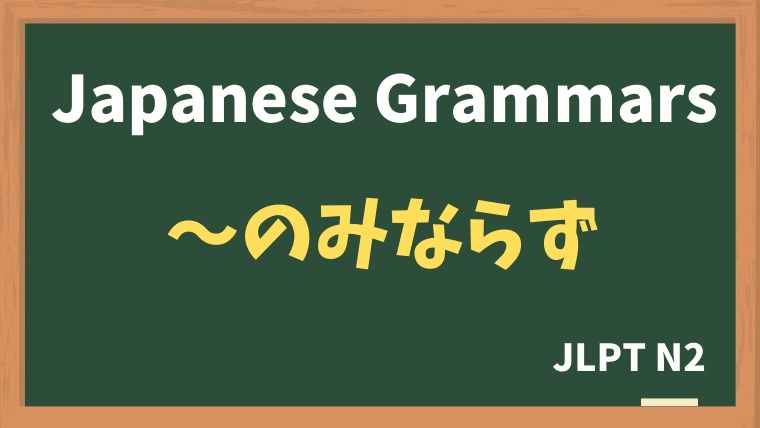
Explanation:〜のみならず
fa-check-circleMeaning
"〜だけでなく"
"not only A, but also B"
A formal way of saying "not only... but also," similar to "〜ばかりでなく." It is often used in written or formal contexts, such as in speeches or reports, to add emphasis when listing multiple elements. This phrase highlights that something is not limited to one factor but also includes other additional factors.
fa-check-circleForm
V(plain form) + のみならず
イA(plain form) + のみならず
ナA(である) + のみならず
N(である) + のみならず
fa-check-circlePoints
- Formal Tone: "〜のみならず" is more formal than similar expressions like "〜だけでなく" or "〜ばかりでなく."
- Expanding the Scope: It emphasizes that something is not just one thing but extends to other things as well.
- Used in Writing: This is commonly used in written contexts, including formal speeches, academic writing, and official reports.
fa-check-circleJLPT Level
N2
Sample sentenes
トムさんは勉強のみならず、スポーツもできる。
Tom is not only good at studying but also at sports.
このスマホはデザインのみならず、性能も素晴らしい。
This smartphone is not only well-designed but also has excellent performance.
NARUTOは日本のみならず、世界中で人気がある。
NARUTO is popular not only in Japan but also around the world.
スマホゲームは子供のみならず、大人にも人気がある。
Smartphone games are popular not only with children but also with adults.
マイケルさんは日本語のみならず、中国語も話せる。
Michael can speak not only Japanese but also Chinese.
K-POPは韓国のみならず、他の国でも人気がある。
K-POP is popular not only in Korea but also in other countries.
Vocabulary
| Japanese |
English | |
| 性能 | せいのう | performance |
| 韓国 | かんこく | Korea |
Similar sentence patterns

